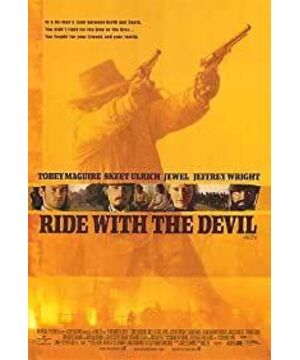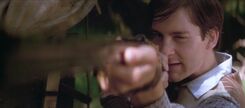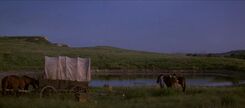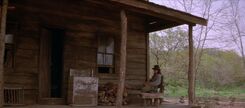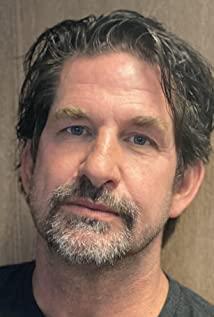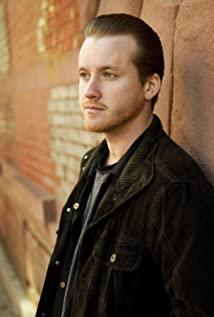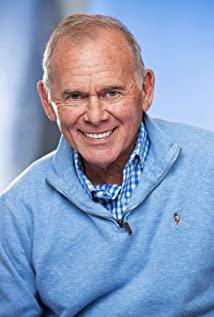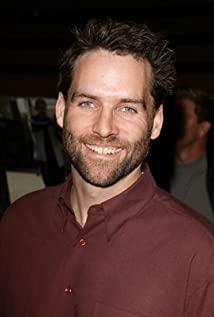Compared with Ang Lee's other works, "Riding with the Devil" is not an easy meal to swallow. The length of 2 hours and 28 minutes and the not-so-compact plot content make it difficult for people to nail it on a chair for a long time and watch it calmly. However, this film is Lee Ang's first attempt at the subject of war, and it incorporates many of his observations and opinions. It is also a different Lee Ang's work, which is very interesting. From Ang Lee’s biography, we know that as a Chinese in the United States, Ang Lee is a person living at the crossroads of Eastern and Western cultures. Therefore, he is unfamiliar with American culture but is very interested in American culture. The reason that reminds him of filming the Civil War is He feels that in the United States, there are not many works that shoot this war from the perspective of the Southern Army. All the works are from the perspective of the Northern Army as a heroic perspective to conclude the justice of the war. But in fact, even now, Americans living in the South still have different views and emotions about the war, and many of them do not agree with the northern perspective. Ang Lee was very interested in this. He felt that it was similar to the Kuomintang-Communist War, but due to its scale and political sensitivity, he could not photograph our Chinese Civil War, so he switched to photographing the United States, but even in the United States, this is not enough. An attempt to please him, but Li Ang did it when he thought about it. He just chose to chew on this hard bone so capriciously. First of all, although the movie is a movie about the Civil War, the protagonist's perspective has been standing in the south that supports slavery from the beginning. It is very unique, very similar to "Gone with the Wind", but it is more than that. As the protagonist, Jake Roedel is not a native of Southern America, but a descendant of German descent, which put him in a very embarrassing position from the very beginning-although fighting for the South conscientiously, Jake still faces scalp challenges. The danger of being cut off by the southern companions. This kind of identity embarrassment makes the male protagonist have a different emotion from the passionate devotion of the beginning to the passive war weariness afterwards. Let him have a more objective and benevolent perspective to observe the war, which was especially obvious when the Southern Army attacked the small town. But what is very strange in this film is that the reason why Jake first stood on the position of the southern guerrillas is not very clear. The sentence "grow up in a southern family" seems to explain everything, which makes people very puzzled. After all, his father is a very devout supporter of the North. Although Jake and his southern friend Jack Bull The Chiles are very good, and the father of good friend Jack was killed by the Northern Army, but this is not the reason for Jake to follow the Southern Partisans to burn and kill the Northerners, and Jake's war motives are also very far-fetched, it seems that because of a good Friends can risk their lives to fight, or because of the death of a good friend, they can easily lose the fighting spirit and philosophy of war. After all, Jake gives us the feeling that he is a person who has been involved in a war and has no obvious standpoint. . This is exactly the same in his emotional performance, except that he was forced to marry by the widow of a good friend, and he got married in a silly way, and he was in the same state as a child playing a house, which was very ridiculous. Maybe in other movies, it would be difficult for a protagonist with such a confused and swaying attitude to fill the audience, right? Secondly, there is no distinction between the enemy and the enemy in the cruel performance of the war. In the beginning, the Yankees attacked the Southern Manor and shot down the bridge section of the owner of the manor, which made people feel disgusted with the Yankee. Later, the Northern Army encircled the male protagonist and several guerrillas who were eating in the hut, and it was also felt. Naked horror, let alone the scene of the heroine's former father-in-law being shot to death, a group of women holding the body of the master, behind the Yankee's burning house, people gritted their teeth. But in the second half of the movie, the burning, killing, looting and looting carried out by the southern guerrillas when they entered a small town under the northern sphere of influence was even more stunned. Jack’s handsome comrades rushed into the town on horseback, shooting at men, children, and blacks. They broke into houses and took the men out, ignoring the crying of their wives and children. The gun was against the man's chest, and blood spurted out instantly after the loud noise. A corpse was piled on the side of the road like sacks, and the Southern Army was still looking for someone to kill. At this time, the audience's favor with the Southern Army disappeared, and the enemy and me of the war became blurred here, making people fear the war itself. At this time, it seems more natural for the hero Jake to enter the war exhaustion period. Of course, his aversion to war began when his good friend died, and it was just negative at this time. It can be said that this kind of expression of war without faction is quite unique. Finally, the relationship between the actor and two supporting actors in the film is also very interesting, like friends and lovers. One is a little hairy, inseparable, and travels all over the world in the name of war, even accepting all the children born to the women he has gone to; the other is a black brother who has a revolutionary friendship halfway through, not talking too much, but also inseparable, habitual Sleeping together is also fun. With the change of friends, the male protagonist also changed from advocating and supporting slavery, despising black people, and becoming respectful and understanding black people's feelings. The "male" friend is also the male lead The long and important part is not seen in many movies. Here, the part of the heroine, on the contrary, feels a bit ridiculous and so-so. But the perfect finale, returning to the main line of the family, is also the personal logo of Ang Lee's previous works, which is consistent with the director's usual style. Generally speaking, although "Riding with the Devil" is not a well-digested work, but after understanding the director's painstaking efforts and being able to discover the special features, it can be regarded as having fun in hardships, letting you come with all your hardships. In addition, the section of the massacre town embodies Ang Lee's unique and profound view of war, which is shocking and worth seeing. The other parts can be appreciated as landscape paintings when you are in good spirits, which is also excellent.
View more about Ride with the Devil reviews


